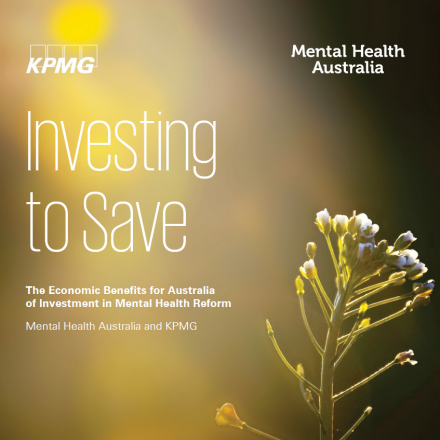CEO Update - One step closer to seeing a much-needed change in the NDIS
One step closer to seeing a much-needed change in the NDIS
When it comes to raising issues and making recommendations to government about the provision of services under the NDIS for people with psychosocial disabilities related to a mental health condition, we’ve weighed in heavily from the very beginning.
We’ve always said the NDIS has great potential to improve the lives of a relatively small population of people with psychosocial disability who have historically missed out on the supports they need to live contributing lives. But we’ve also recognised a range of policy and operational issues around its implementation that simply must be addressed, and appreciate being able to make recommendations for the right change.
So just recently, when we were given another opportunity for input, we enthusiastically provided more detail around our recommendation for a much-needed recovery oriented philosophy to be incorporated into the assessment process for access to the NDIS.
This comes after we appeared before the Joint Parliamentary Committee on the NDIS inquiry into the provision of psychosocial services in late April. On the day we gave evidence, this included Josh Fear and I from Mental Health Australia, Liz Crowther and Amanda Bresnan from Community Mental Health Australia, Tony Stevenson from the Mental Illness Fellowship of Australia, and Patrick McGorry from Orygen, and a wide range of other representatives from the mental health sector appeared at other times.
Many submissions to the Inquiry highlighted the challenges stemming from the legislated requirement that someone with psychosocial disability be assessed as having an impairment related to a psychiatric condition that is ‘permanent or likely to be permanent.’ This feature of the Scheme design, perhaps more than any other, reminds us that psychosocial disability was a very late addition to the Scheme.
To their credit, the Committee was very interested in practical alternatives we might propose to improve how the Scheme works for this population.
So we told them.
We provided the attached Supplementary Submission after consulting with a range of key experts. We were very careful to propose options to clarify the original intended cohort for the Scheme – i.e. people with the greatest need for disability support – not to expand the Scheme’s reach. In other words, we are not suggesting that policy makers should relax the access criteria, but instead should make improvements in order to assist the right people to access the NDIS as easily as possible.
The Supplementary Submission proposes a range of concrete recommendations, including:
- Amending the head legislation to remove references to “psychiatric condition” and to replace the word “permanent” with alternative terminology that reflects a recovery oriented approach i.e. the impairment or impairments are ongoing, or likely to be ongoing without the person receiving supports intended to build their capacity;
- Amending the rules to give the NDIA greater flexibility to implement the Scheme for people with psychosocial disability based on recovery principles; and
- A series of options for recovery-oriented practice to be applied to the operational aspects of the Scheme for psychosocial disability.
- Recognising that legislative changes can take some time to take effect, we have also sought urgent changes to operational processes.
We expect the Productivity Commission to release its position paper on its NDIS Costs study very soon. This is likely to be a very significant paper about the future directions for the NDIS. It will require careful and thorough analysis from the sector in shaping the final report.
So now we watch, and wait, and hope to see the fruit of our efforts for this vital change.
Warm regards
Frank




